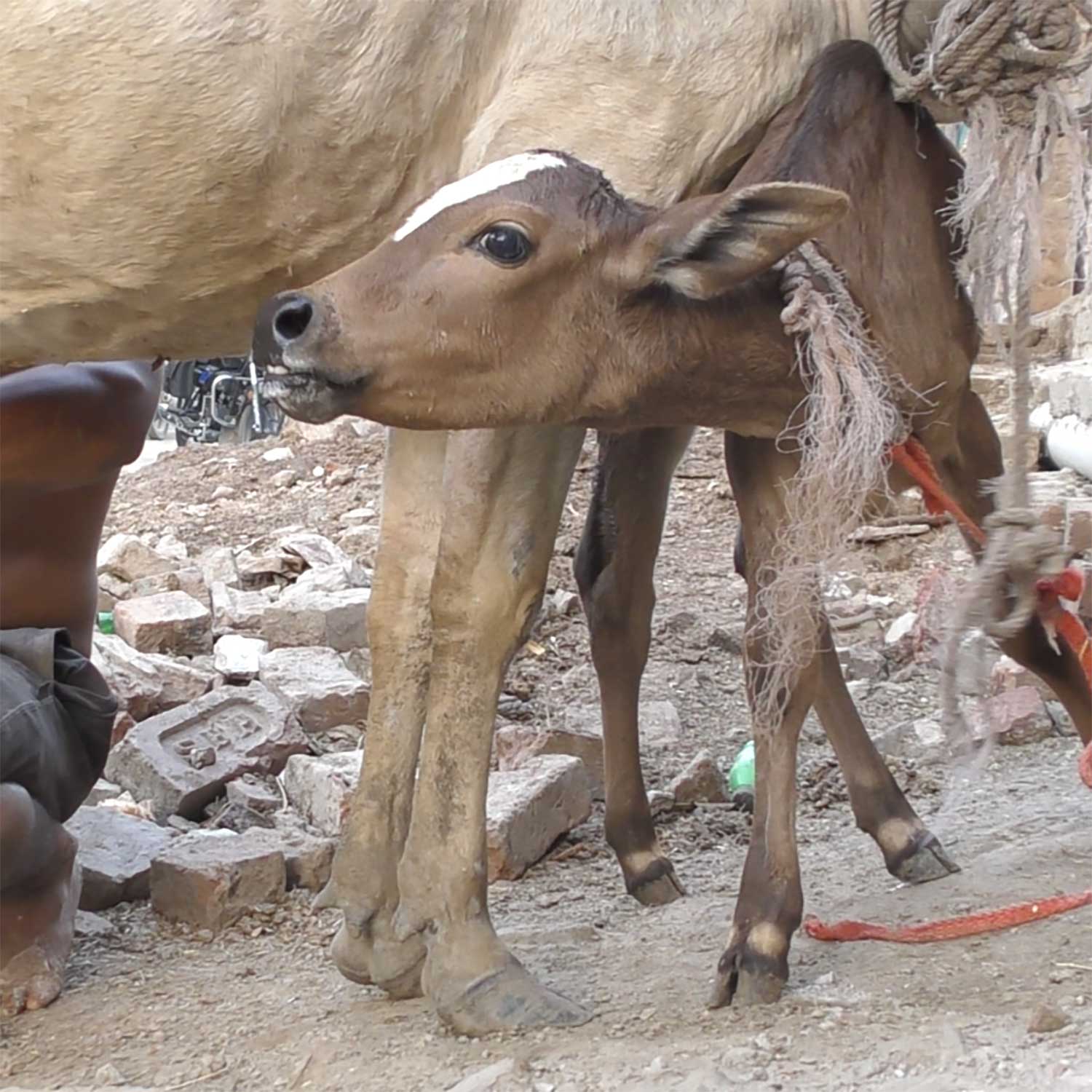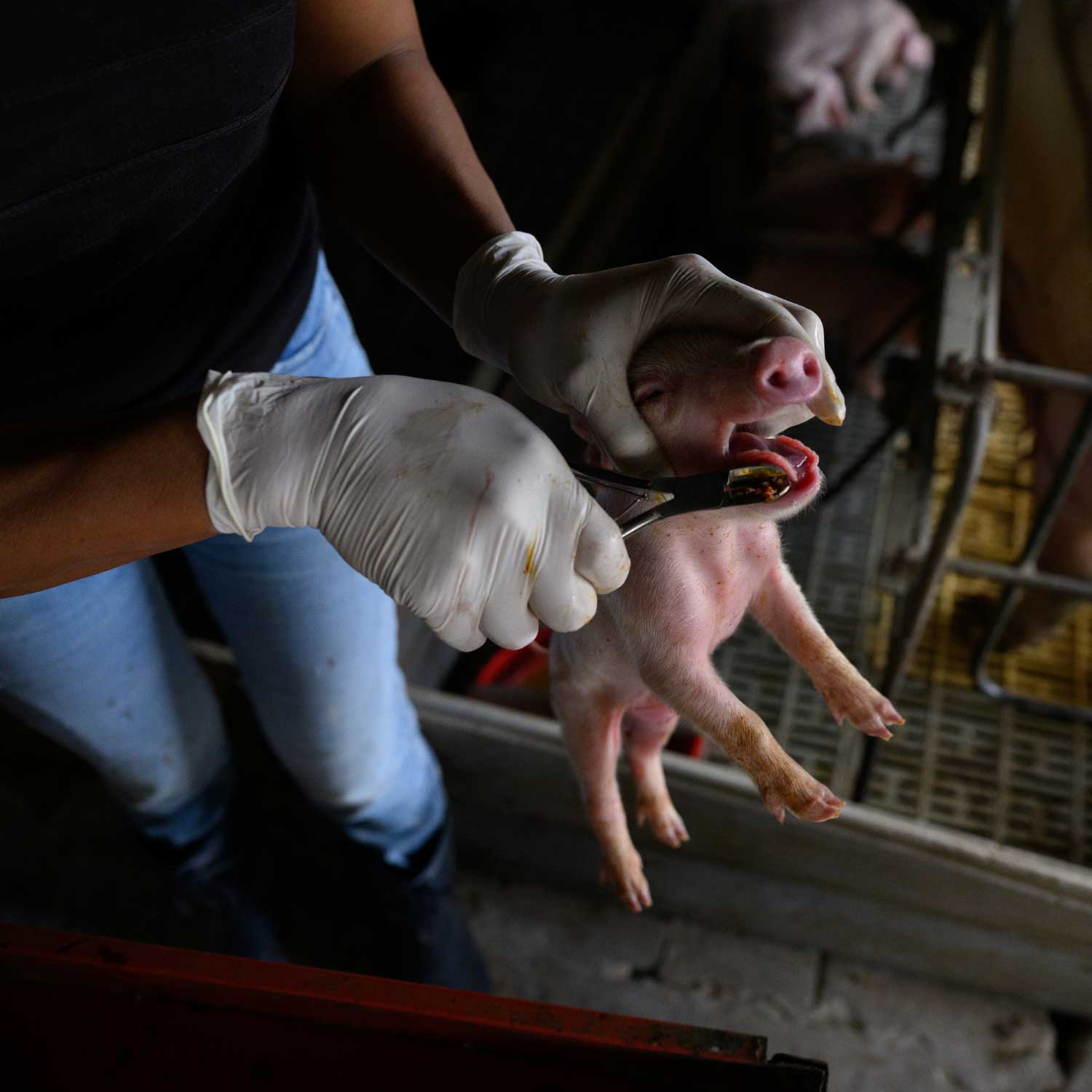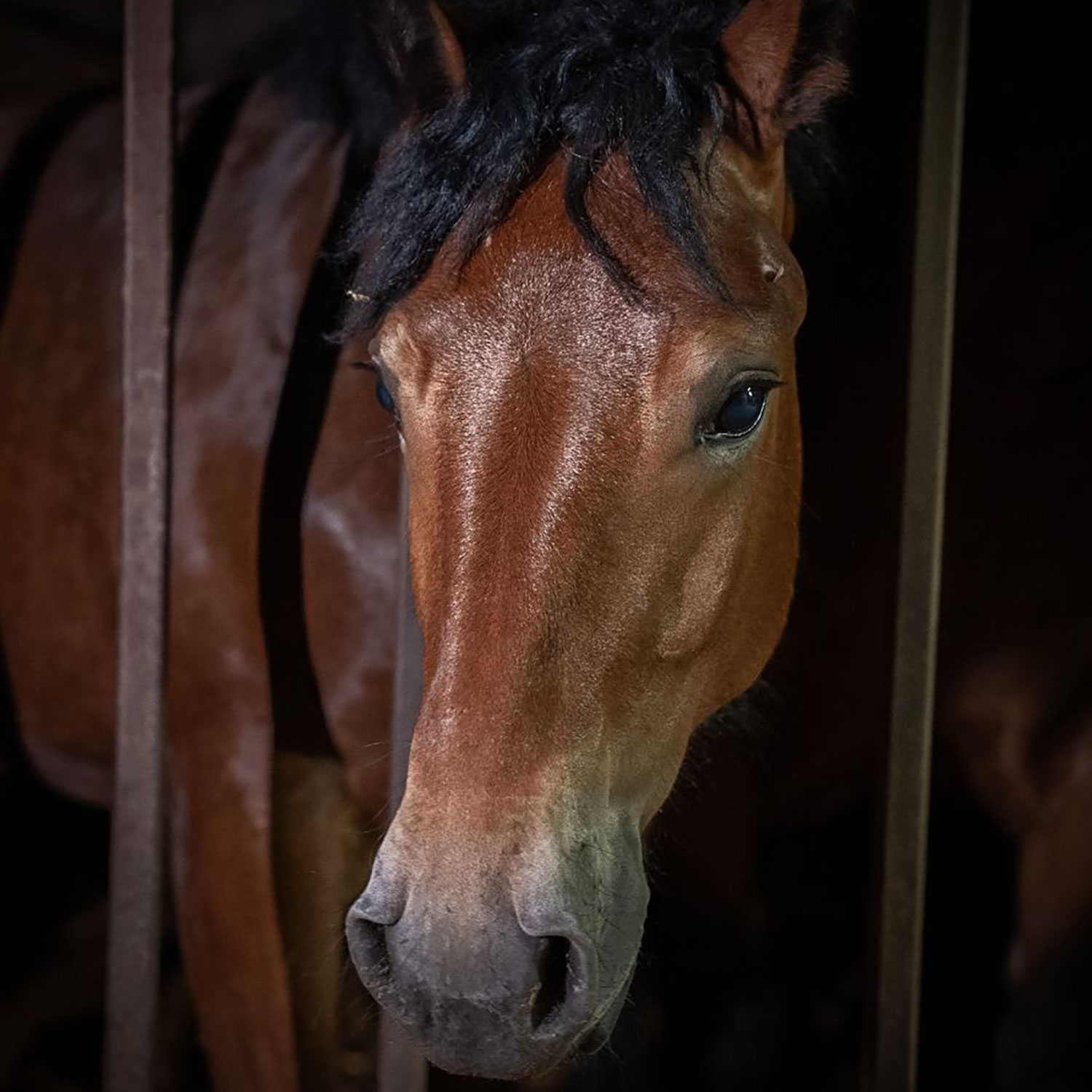Despite Supreme Court ruling, industry launches attacks on Prop 12
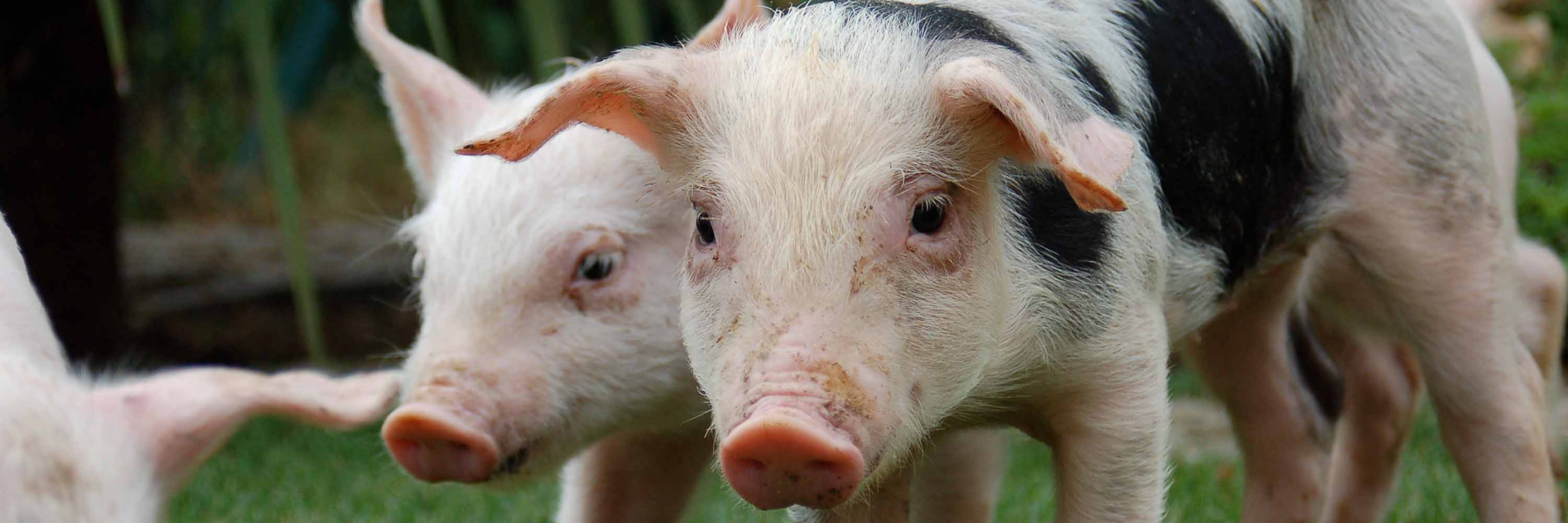
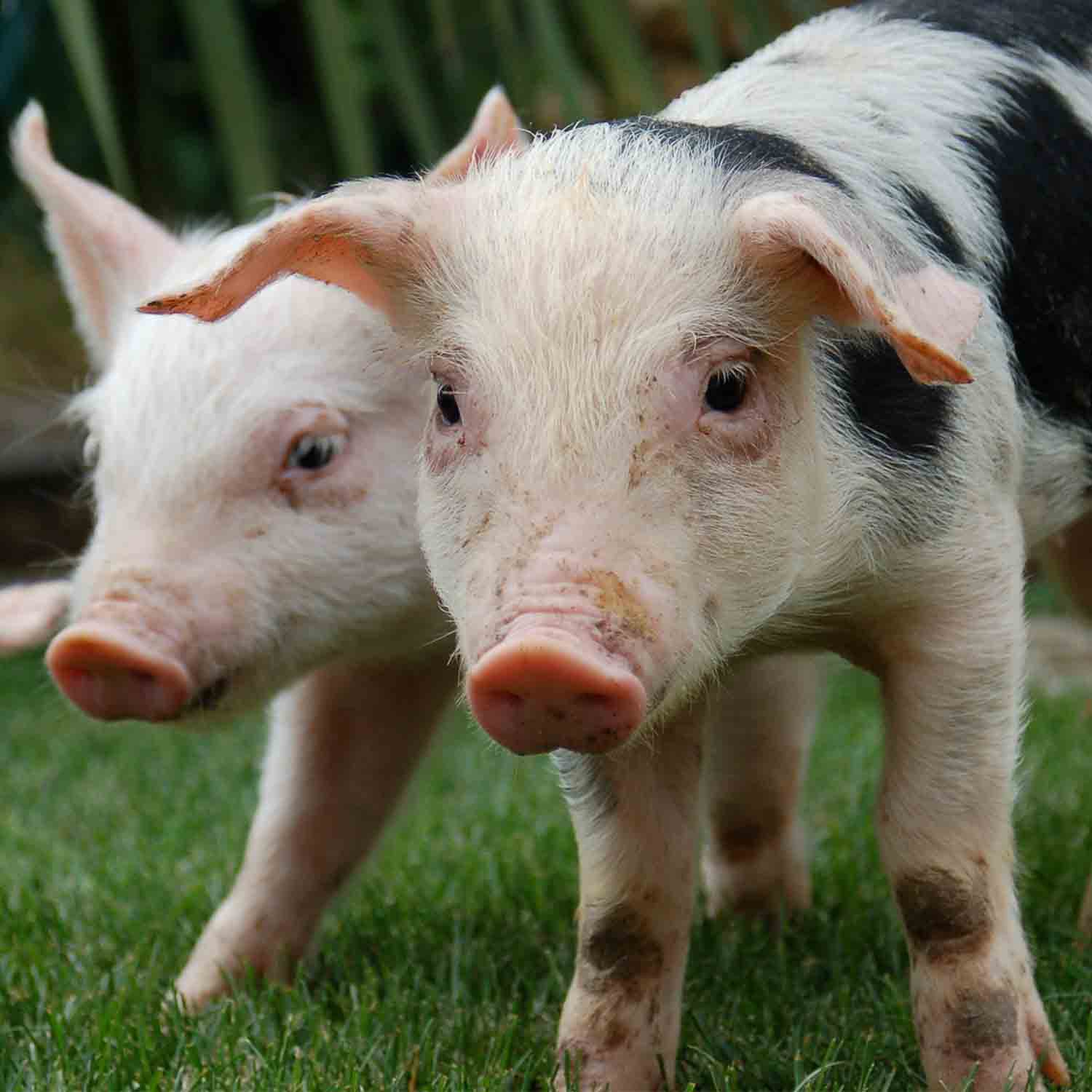
Update July 23, 2025 – Another attack on Prop 12 is now moving through Congress. The Save Our Bacon Act would force California to allow the sale of pig meat and veal from states with lower animal protection standards.
Update July 9, 2025 – The U.S. Department of Justice is suing California to roll back laws like Prop 12, which require more space for hens. Federal lawyers claim the rules increase egg prices and break federal law. California argues inflation and bird flu are largely to blame. This disease spreads quickly in crowded cages and has killed millions of hens, shrinking the egg supply and driving up prices.
Update June 2023 – After the Supreme Court upheld Prop 12, the industry quickly went on the offensive. One of its first actions was to push the EATS Act into the U.S. Farm Bill—a set of food and farming laws updated every five years. The EATS Act would wipe out state animal protection laws, forcing states to accept products that violate their own standards.
______________________________________________________________________
The United States Supreme Court has taken the side of animals and California’s voters with a decision to uphold Proposition 12 (Prop 12) with a 5-4 majority. By ruling in favor of Prop 12, the U.S. Supreme Court has not only cleared the way for the law to fully take effect, it has also set a favorable precedent for similar laws enacted elsewhere designed to protect farmed animals.
At Animal Equality, we are relieved with the outcome of the Supreme Court’s decision today. As one of the organizations who worked to pass and uphold Prop 12, we know how important this law is in protecting farmed animals from extreme abuse. It’s good that the U.S. Supreme Court sees its importance, too.
–Sharon Núñez, President & Co-founder of Animal Equality
What Is Proposition 12?
Deemed the United States’ “strongest farmed animal protection law,” Prop 12 started as a ballot initiative in California to establish basic protections for animals on factory farms. After nationwide efforts by animal activists and a coalition of animal protection organizations including Animal Equality, Prop 12 passed in 2018 with an overwhelming 63% of votes in favor.
Formally titled the “Prevention of Cruelty to Farm Animals Act,” Prop 12 establishes minimum space requirements for hens, pigs and calves, most of whom are typically confined to cages so small that they can’t turn around or move for most of their lives. Under the law, certain egg, pork, and veal products sold in California, including products imported from other states, must be produced in compliance with these requirements.
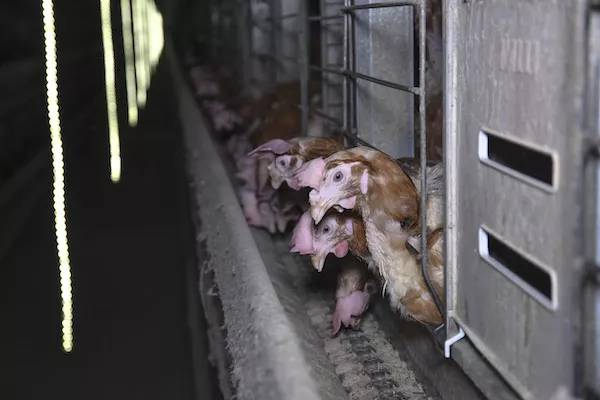
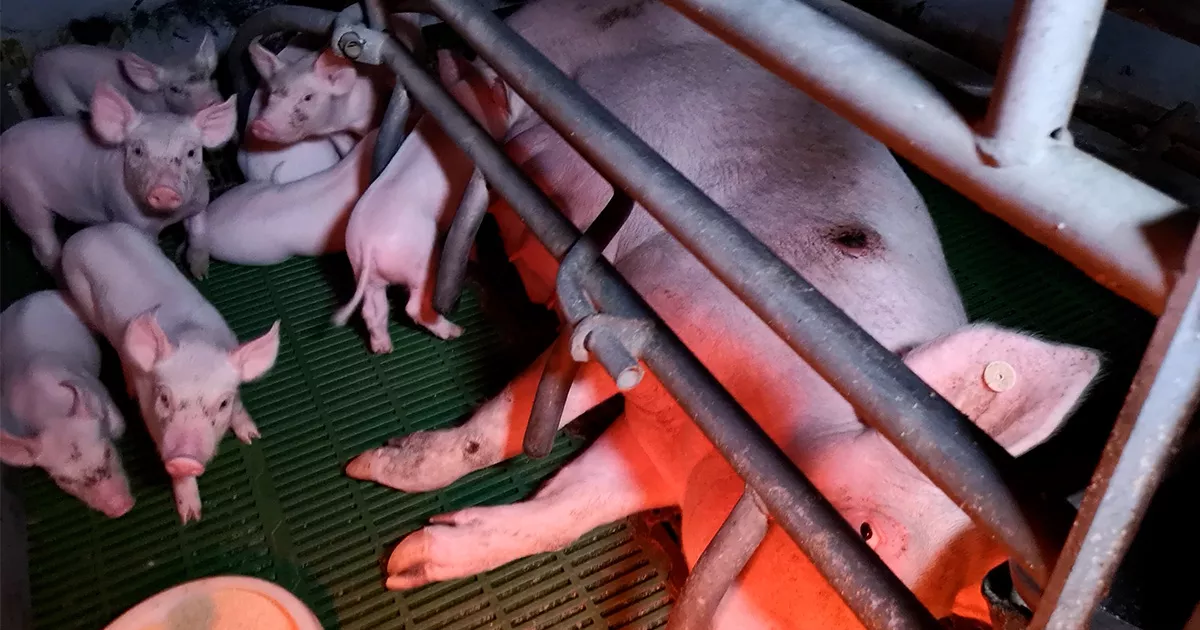
Hens confined to cages on farms can’t spread their wings or exhibit natural behaviors like dust-bathing or perching, while pigs can’t even nurture their babies or turn around. Consequently, the animals suffer greatly both mentally and physically inside these cages barely bigger than their own bodies.
The extreme confinement of farmed animals has been challenged by animal protection groups and animal welfare scientists for years.
…the close confinement of [female pigs]…is one of the most extreme examples of cruelty to an animal. It continues throughout much of life and is much worse than severely beating an animal or most laboratory experiments.
–Donald M. Broom, Professor of Animal Welfare, Department of Veterinary Medicine, University of Cambridge
After reviewing the literature, visiting production facilities, and listening to producers themselves, the Commission believes that the most intensive confinement systems…prevent the animal from a normal range of movement and constitute inhumane treatment.
–Pew Commission on Industrial Farm Animal Production
Prop 12 does more than protect animals–it also protects human health. The Center for Food Safety endorsed Prop 12 based on studies showing the link between animal confinement and foodborne illnesses like E. Coli and Salmonella. Studies also indicate extreme confinement breeds conditions for life-threatening pandemics like bird and swine flu and COVID-19.
By passing Prop 12, California joined 13 other U.S. states that have banned one or all forms of extreme animal confinement, including: Arizona, Colorado, Florida, Kentucky, Maine, Massachusetts, Michigan, Nevada, Ohio, Oregon, Rhode Island, Utah and Washington.
Why Was Prop 12 In The Supreme Court?
In September 2021, the National Pork Producers Council (NPPC) and American Farm Bureau Federation (AFBF) filed a petition to bring their case opposing Prop 12 in front of the U.S. Supreme Court. These organizations originally sued in 2019, claiming Prop 12 violates the Commerce Clause of the U.S. Constitution.
Specifically, because Prop 12’s increased welfare standards for in-state pork sales will likely increase the costs of production for pork producers, the industry sued to try to strike down that portion of the law.
Shortly after the pork industry’s lawsuit was filed, Animal Equality joined the case as an intervening party, to help defend the law against the industry’s attack.
A few months after the NPCC’s and AFBF’s petition was granted in March 2022, the Biden administration filed a brief siding with the pork industry.
The brief claimed California “has no legitimate interest in protecting the welfare of animals located outside the state,” quoting a previous Supreme Court decision. The brief continues to say, “Voters in pork-producing States must determine what constitutes ‘cruel’ treatment of animals housed in those States — not voters in California,” quoting a 1935 Supreme Court decision, Baldwin v. G.A.F. Seelig Inc.
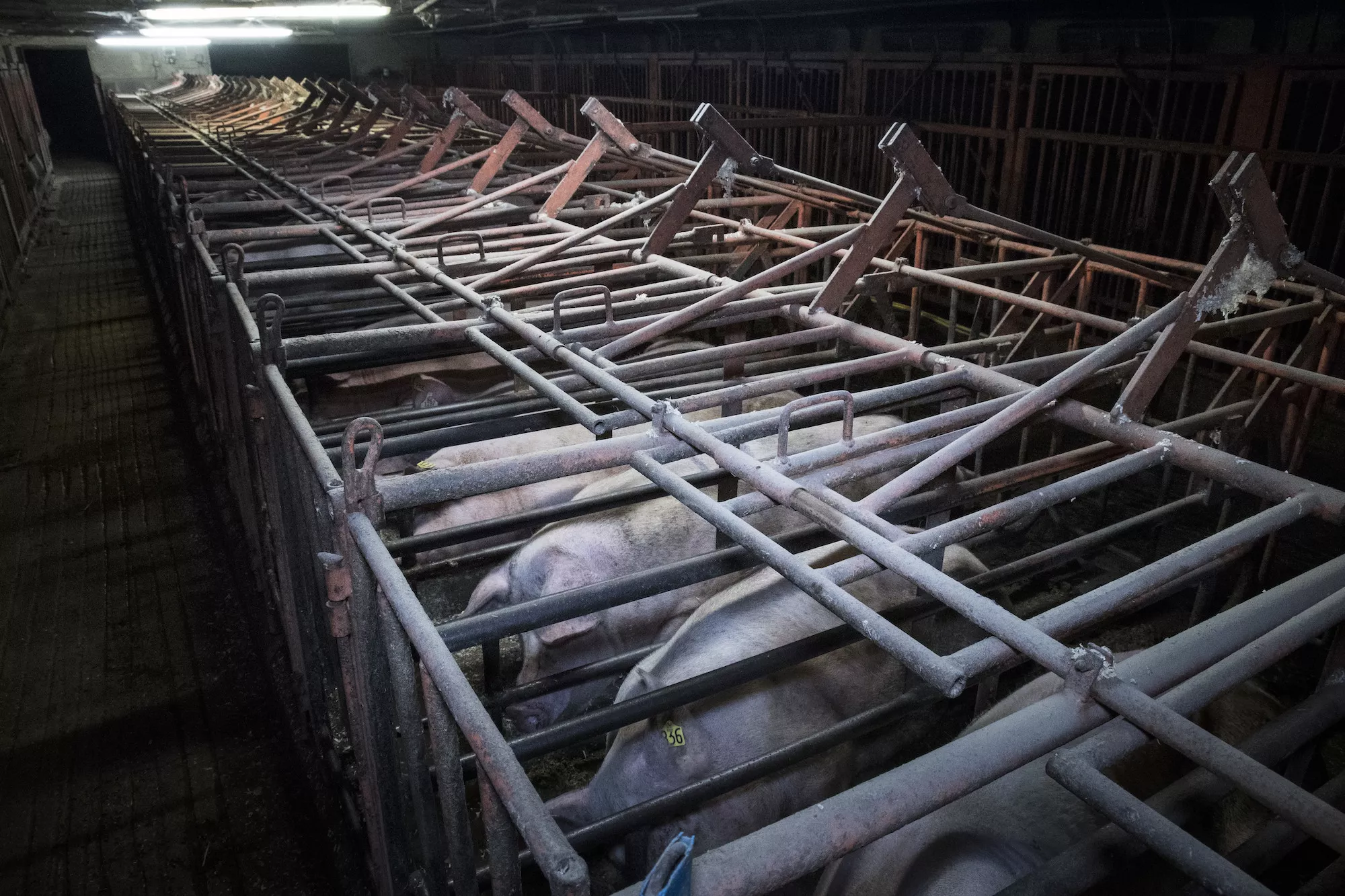
The U.S. Supreme Court finally heard oral arguments this past October from those opposing and in favor of upholding Prop 12.
Despite opposition, the Supreme Court released today its decision to uphold Prop 12, and the votes of Californians who oppose the extreme confinement of farmed animals. The decision comes with a 5-4 majority. Chief Justice John Roberts and Justices Samuel Alito, Brett Kavanaugh and Ketanji Brown Jackson dissented.
By upholding the constitutionality of California’s Prop 12, the U.S. Supreme Court has taken a stance that protects the rights of states (and their voters) to set animal welfare standards for products sold within their borders. This ruling has profoundly important implications for animals and those who advocate for their meaningful protection under the law. We are thrilled with the Court’s ruling today.
–Sarah Hanneken, Legal Advocacy Counsel Animal Equality
Thank you to the volunteers, donors and fellow animal advocates for making this progress happen. A special thank you would like to be extended to the intervening organizations who played an integral part in the Supreme Court case:
Animal Legal Defense Fund, Animal Outlook, Compassion in World Farming USA, Farm Sanctuary, The Humane Society of the United States and The Humane League.
Join the Efforts to Protect Animal From Extreme Confinement
While legislation is crucial in providing protections for farmed animals, the future for animals trapped in cages ultimately depends on consumers.
By replacing meat, dairy and eggs with plant-based foods, consumers send a clear message to corporations that animal abuse will not be tolerated nor funded.
Fortunately, adopting a cruelty-free lifestyle is more convenient than ever. You can join millions of Americans who have already taken the plunge, resting assured that you are sparing lives from suffering with each bite you take.
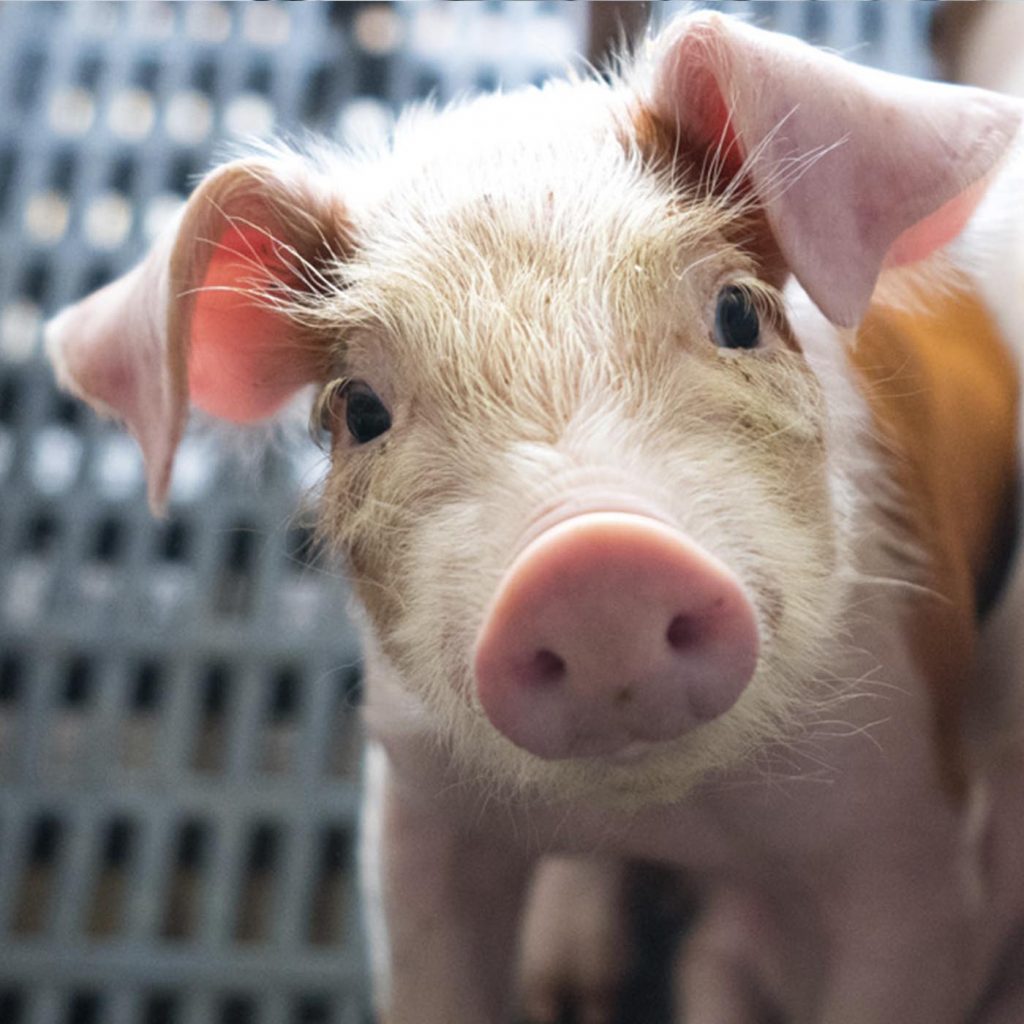
SAVE ANIMALS FROM ABUSE
Pigs, cows, and other animals feel pain and deserve to be protected from abuse.
You can protect these intelligent animals by simply choosing plant‑based alternatives.

